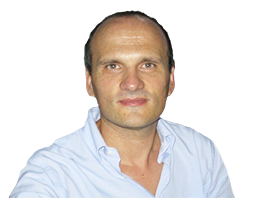Articolo pubblicato su Nòva, Il Sole 24 Ore, domenica 21 luglio 2024 – English Version below
Tra il primo, incerto, decollo dell’aereo dei fratelli Wright, che riuscì a staccarsi di qualche metro dalla Terra, e il fantastico volo dell’Apollo 11 che portò i primi umani sulla Luna sono passati soltanto sessantasei anni, circa. A pensarci, si tratta di un’accelerazione tecnologica che lascia senza fiato e che forse stupisce chi cede alla tentazione di sopravvalutare il progresso tecnologico contemporaneo. In effetti, nei cinquantacinque anni successivi, gli umani hanno fatto anche molti passi indietro prima di decidere di tornare sulla Luna, anche se hanno generalizzato la possibilità di volare, fino ai quasi 5 miliardi di viaggiatori in aereo raggiunti prima del covid nel 2019. Soprattutto, in quel periodo, hanno progredito con i computer, tanto che nelle tasche di oltre 4 miliardi di loro si trova una potenza di calcolo superiore a quella della quale disponeva la Nasa all’epoca della sua grande impresa extraterrestre. Il quadro interpretativo del progresso non offre una prospettiva lineare: perché cambiano sia le tecnologie che i punti di vista di chi cerca di comprenderne le conseguenze. Ma la sfida contemporanea è ancora più implacabile: gli umani, oggi immersi nello sforzo pervasivo e ondivago di capire l’intelligenza artificiale, si trovano ad affrontare un problema originale, nel quale le tecnologia da interpretare e i punti di vista di chi ne cerca le conseguenze tendono paradossalmente a convergere nel grande tema dell’evoluzione della conoscenza. Ci vuole una bussola.
Viktor Mayer Schönberger, docente a Oxford, è una guida essenziale per ricostruire il senso di quello che accade nel rapporto tra gli umani e le loro tecnologie. Nel 2013 ha scritto con Kenneth Cukier il bestseller “Big Data” (John Murray) che ha posto il tema dei dati al centro del dibattito. Nel 2018, ha riflettuto, con Thomas Ramge, sulle conseguenze della digitalizzazione sulla struttura dei mercati in “Reinventing capitalism in the age of big data” (John Murray). Nel 2021 ha pubblicato con Cukier e Francis de Véricourt “Framers” (Dutton) un libro di grande successo che ha innovato il modo di vedere come gli umani comprendono il mondo. E nel 2024, con Urs Gasser, ha scritto “Guardrails: guiding human decisions in the age of AI” (Princeton University Press). E poiché l’intelligenza artificiale e i big data sono due facce della stessa medaglia, Nòva gli ha chiesto di commentare il tema tecnologico di attualità per eccellenza.
«Intelligenza artificiale è forse una locuzione sbagliata. Quello che stiamo vedendo in realtà è un machine learning guidato dai dati, un’automazione della statistica» dice Mayer Schönberger. «La scatola nera che usa i dati non riconosce le causalità ma solo le correlazioni. Non interpreta, calcola. E ottiene risultati eccellenti, ma solo sulla base di ciò che è avvenuto in passato. A questo punto, l’importante è pensare al ruolo degli umani per il futuro».
Già. Le macchine che prevedono non hanno idea dell’avvenire. «Gli umani che pensano per quadri interpretativi, per “frame” appunto, possono immaginare quello che non esiste e che invece si può realizzare. Raccontandosi storie possono giocare con i modelli che usano per pensare le conseguenze» aggiunge Mayer Schönberger. «La grande attività degli umani è quella di esplorare tutte le possibilità offerte da un “frame”, da un modo di vedere la realtà. E lo fanno anche producendo continuamente nuovi strumenti tecnologici. Insomma, tutte le innovazioni cercano di svolgere le loro specifiche funzioni pratiche, ma condividono un significato comune: sono forme diverse di un’unica grande impresa umana, l’impresa di comprendere la realtà». Alcune innovazioni erano proprio dedicate a facilitare la comprensione. «Una grande innovazione, per esempio, è avvenuta quando si è introdotto lo spazio tra le parole nei testi scritti: ha facilitato la lettura silenziosa individuale, creando un’alternativa alla lettura di gruppo, abilitando le persone a valutare da sole la conoscenza trasmessa. Anche il digitale, in fondo, è un’innovazione che riguarda l’accesso alla conoscenza». E l’intelligenza artificiale ne è la forma più recente: «L’intelligenza artificiale aiuta a capire operativamente quello che esiste e, insieme, a esplorare il frame che adottiamo per sapere quello che esiste. Dunque ci spinge ad andare oltre quel quadro interpretativo. Noi poniamo domande alla macchina. Per poi farci domande su noi stessi. E superarci. Forse si può parlare di simbiosi. Di certo è un rapporto evolutivo: l’intelligenza artificiale serve a conoscere quello che esiste senza reinventare la ruota. Per ricordare agli umani di andare oltre la ruota».
Insomma. L’intelligenza artificiale è un nuovo strumento che serve agli umani per imparare come società. Il problema non è lo strumento ma il sistema di priorità. «Spendiamo miliardi di dollari per questo strumento. E non spendiamo neppure lontanamente altrettanto per le istituzioni che servono a garantire un apprendimento di qualità». In un contesto mediatico dominato dai social network ce ne sarebbe bisogno. «I social media sembrano strumenti di apprendimento. Invece sono esperienze di rumore indistinto che creano dipendenza. È tempo di innovare la scuola e investirci miliardi». Perché la nuova epoca è caratterizzata da un tipo di innovazione che si dà una direzione.
Over the course of just 66 years, humanity progressed from the Wright brothers’ tentative first flight—barely lifting their plane a few meters off the ground—to the awe-inspiring Apollo 11 mission that carried the first humans to the Moon. This extraordinary leap in technological advancement is a testament to human ingenuity and perseverance. Yet, it also serves as a reminder of the complexities and irregularities of progress. Over the subsequent 55 years, humanity not only paused its lunar ambitions but also took steps backward before rekindling efforts to return to the Moon. During this time, however, air travel became commonplace, culminating in nearly 5 billion air passengers globally by 2019, just before the COVID-19 pandemic. In the meantime, astonishing advancements in computing technology have unfolded, enabling over 4 billion people to carry more computing power in their pockets than NASA had during its lunar missions.
The narrative of progress is not a straightforward, linear ascent. Both the technologies we develop and the perspectives we use to understand their impacts evolve over time. Today’s most pressing challenge is navigating the rapid advances in artificial intelligence (AI), a field that blurs the line between the tools we create and the frameworks through which we interpret their consequences. This convergence underscores a broader theme: the evolution of human knowledge. Addressing this challenge requires not only technological expertise but also intellectual guidance—a “compass” for navigating the uncharted waters of the AI era.
Viktor Mayer-Schönberger, a professor at Oxford and a leading voice on the intersection of humanity and technology, offers such guidance. Mayer-Schönberger has co-authored several influential works that illuminate the transformative effects of technology. In *Big Data* (2013, with Kenneth Cukier), he brought data’s role in shaping society to the forefront. In *Reinventing Capitalism in the Age of Big Data* (2018, with Thomas Ramge), he explored how digitization is reshaping markets. With *Framers* (2021, co-authored with Cukier and Francis de Véricourt), he introduced innovative ways of understanding the world. Most recently, in 2024, he and Urs Gasser co-authored *Guardrails: Guiding Human Decisions in the Age of AI*, addressing the challenges AI poses to decision-making and governance.
When asked to comment on the critical issues surrounding AI, Mayer-Schönberger begins with a striking observation: “Artificial intelligence is perhaps a misnomer. What we are actually seeing is data-driven machine learning—an automation of statistics.” He emphasizes that these systems are not capable of recognizing causality or interpreting meaning; instead, they operate by identifying correlations in data. While this approach produces impressive results, it is inherently backward-looking, limited to patterns derived from the past. This, he argues, highlights the enduring importance of human agency in shaping the future.
Unlike machines, humans possess the ability to think interpretively, to imagine and realize possibilities that do not yet exist. “Humans work with ‘frames’—interpretive frameworks for understanding reality,” he explains. “By telling stories and exploring different models, humans push the boundaries of their understanding and develop new tools to advance it. Every innovation, no matter how practical its purpose, is ultimately part of this greater enterprise: the quest to comprehend reality.”
Some innovations, he notes, have been specifically geared toward improving understanding. For instance, the introduction of spaces between written words revolutionized reading by enabling silent, individual comprehension, thereby fostering critical engagement with knowledge. Similarly, digital technology represents a profound innovation in how knowledge is accessed and shared. Artificial intelligence, Mayer-Schönberger contends, is the latest manifestation of this trend: a tool that operationalizes what we already know while encouraging us to question and refine the frameworks through which we interpret that knowledge. “We ask questions of the machine, which then prompts us to ask deeper questions of ourselves. It’s a symbiotic and evolutionary relationship.”
The real challenge, however, lies not in the tool itself but in how society chooses to prioritize its use. Mayer-Schönberger warns that while we pour billions of dollars into developing AI, we neglect the institutions needed to ensure that this technology serves as a vehicle for quality learning. Social media, for example, often masquerades as a tool for learning but instead delivers addictive, unstructured noise. To harness the transformative potential of AI, Mayer-Schönberger argues, we must invest heavily in education systems and institutions that can guide society toward meaningful, intentional innovation.
Ultimately, artificial intelligence is not just a technological marvel; it is a societal milestone—a new tool for collective learning. But its promise can only be fulfilled if paired with robust systems that direct its use toward enriching human understanding. As Mayer-Schönberger aptly concludes, “The new era demands innovation with purpose, and it starts with investing in the foundations of knowledge—our schools and our priorities.”
Foto: “Wright Brothers’ First Flight” by e-strategyblog.com is licensed under CC BY 2.0.



